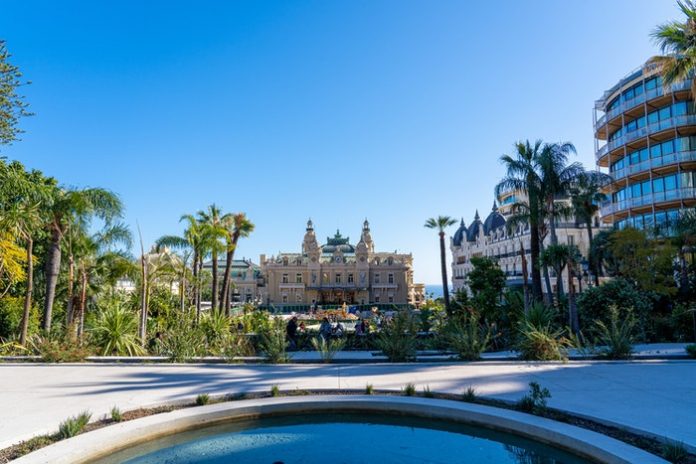Europe used to be the capital of gambling before Las Vegas evolved from being a desert to becoming the neon capital of the universe. In Europe, the first official casino started operating as early as the 17th Century.
The hugely-organized casino industry that the world knows and loves today started off as unregulated dice games played within people’s homes and within army camps. It went through phases of prohibition, prosecution, and eventual regulation, before the initial foundations for the current luxury casinos were established in Europe.
Currently, European casino games are no longer only played in the palatial halls in Monte Carlo, but rather in people’s living rooms and offices, as online casino sites have taken over gambling in Europe. But we have to understand that the online gambling system was not always full of premium services and an avalanche of games and bonuses like it is today. The truth remains that casinos in Europe started small, with governments being involved up to the 19th Century, until the door to modern day gambling was opened.
The Early Beginnings
It was around 500 BC that gambling started off in Europe, because that was when the first known dice games were played, according to the writing of the philosopher Sophocles. But the Roman authorities were against it at that time, and that is why the Roman people had to devise a means of covering up their gambling at the time. It was during that period that they designed the first chips, and that was done as a means of avoiding prosecution that came with real money gambling.
The dice games trudged on and survived the period of prosecution into the centuries that followed, until the Medieval era and new forms of gambling surfaced, with new regulations or restrictions by the government of the day. In the 15th century, Europe witnessed the arrival of cards, and it became so popular on the continent, but it was mostly played in private or public houses at that time, and these houses were nothing like the present day casinos.
The First Casino
The first gambling house, the Ridotto in Venice, was established in Europe in 1638. It was the government that established this Venetian gambling house, and according to the standards of today, it was the first official casino. Just like the present day casinos, the developers spared no expenses in the decoration and the types of services offered in the casino. However, it came with very strict rules, because it was geared towards luring in mostly people of the upper class.
Now, the initial reason why this was established was for it to serve as a distraction for people during the carnivals, but they did not close down until the 18th century when gambling became fully illegal. As of today, you can still see the casino standing in the city of Venice. However, it was moved from its initial location to the Ca’ Vendramin Calergi around 1950.
The Expansion
The development of gambling followed a particular timeline in Europe. It started with the state’s approval of lotteries, and moved to the ban on card games and gambling in general. Then gambling was made legal through decrees, and gambling restrictions by governments of different countries in Europe. Gambling in Europe later evolved to the approval of the establishment of the second oldest casino on the continent, named Redoute casino. It was built in Belgium in 1762 and was approved by the Bavarian Cardinal, Jean-Theodore. The liege revolution and prohibitions happened and affected the casino negatively, but up to today, it is still operating under the name Casino Spa.
After the establishment of the Redoute, a bath house was opened in Baden Baden in Germany in 1765, and the leisure activities that were offered there lured in visitors. One such leisure activity was gambling. There was an official prohibition of gambling, but that never stopped the authorities from demanding commissions from the bathhouses—something they named the ‘bath funds,’ which were used for the construction of roads and other amenities in the towns. This Baden Baden type of gambling later blossomed into a real casino business and became one of the oldest casinos on the continent, with the name, Casino Baden Baden.
In the 1770s, they established two other casinos on the continent, namely, the Redoute in France and the Vaux Hall in Belgium, which was the second in the country. However, it took the roulette wheel 20 years to come into prominence, and that was after a huge wave of gambling hit France and made the casino business very successful.
It was in French literature of 1796 that roulette was first mentioned. But it was still different from the European roulette that people love and enjoy today. The roulette table was altered by the Blanc brothers in France. They added a single 0 to theirs and started running the Hamburg-based Kursaal Casino in Germany in 1834. This version of the game became a thing in Europe, as it spread like wildfire and kickstarted the expansion of casinos in Europe.
Monte Carlo
As casinos expanded, Florestan I, the Prince of Monaco, authorized concession for the first bathing house and casino. This led to the opening of the Villa Bellevue in 1856 as a temporary casino, until the construction of a bigger casino or hotel. Even with this, it was still difficult for Monaco to attract gamblers from Europe, and there were many complications that prevented the casino from flourishing.
It was at this juncture that François Blanc delved into the system, after the success he recorded in his Hamburg casino business was halted by restrictions by the government. He conceived the idea of establishing an all-year casino resort, and Monaco was his preferred location. He suggested that the province where the casino was built should be named Monte Carlo, and Le Grand Casino de Monte Carlo was launched in 1858.
In the years that followed, the success that the casinos witnessed brought in many visitors, and this made the economy of Monte Carlo boom. For the next ten years, Monaco stood as the mecca of casinos in Europe, while the majority of other countries on the continent restricted gambling. The rest, as they say, is history.
Find a Home-Based Business to Start-Up >>> Hundreds of Business Listings.
















































